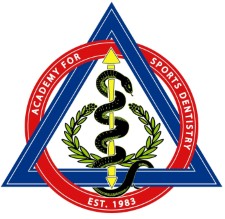Position Statements
Definition of Sports Dentistry
Sports Dentistry is a branch of Sports Medicine that connects dentistry and sports, with a specific focus on the prevention and treatment of dental injuries and related oral diseases associated with sports and exercise.
Approved by the Academy for the Sports Dentistry Board of Directors 7/22/2024
Qualifications of an ASD Team Dentist™
Criteria to meet the qualifications of the position of an ASD Team Dentist™ [ASD]:
- Be a licensed dentist in compliance with the Dental Practice Act of his/her state, province, or country. (Jurisdiction)
- Be a member in good standing of the Academy for Sports Dentistry [ASD].
- Attend and complete the ASD Team Dentist course at least once every five (5) years.
- Complete at least fifteen credit hours of continuing education in sports dentistry-related subjects every three (3) years.
- Acquire the knowledge and expertise to educate health care professionals, certified athletic trainers, coaches, athletes and parents on the benefits and methods of prevention of, and parents on the benefits and methods of preventing sports-related oral-facial injuries and oral diseases.
- Be proficient in the fabrication and delivery of properly fitted mouthguards, including impression/digital scanning techniques and establishing occlusion.
- Be well-versed in the diagnosis and treatment of orofacial trauma including but not limited to:
- Oral-facial first aid resulting from contusions, lacerations
- Emergency/immediate treatment of dental luxation, avulsions and tooth fractures
- Identification of maxillary and mandibular fractures
- Identification and treatment of TMJ injuries and dislocations
- Identify medical complications of head trauma
- Be familiar with doping issues and the effects of illicit and performance-enhancing drugs
- Oral cancer
- Restorations for trauma treatment
- Establish a support team of dental specialists and auxiliary staff.
- Cooperate with the other members of the Sports Medicine Team to ensure the health and well-being of the athletes.
Approved by the Academy for Sports Dentistry Board of Directors 6/12/2024.
A Properly Fitted Mouthguard
An athletic mouthguard is a resilient device or appliance placed inside the mouth to reduce injuries particularly to the teeth and surrounding structures.
For optimal safety and well-being of athletes competing in the 21st Century, the Academy for Sports Dentistry has adopted the position that the single word “mouthguard” must be replaced by the term “a properly fitted custom mouthguard”.
In contact sports, it is critical that the mouthguard provides protection from direct and indirect impact. It must fit accurately, stay in position during impact, and redistribute the impact’s energy. The criteria for the fabrication or adaptation of a properly fitted mouthguard must include the following considerations:
- Pertinent Medical History
- Dental Status that considers:
a. Dental Caries
b. Periodontal Status
c. Developmental Occlusion
d. Orthodontic or Prosthodontic Appliances
f. Congenital/Pathologic Conditions
g. Jaw Relationships
- Demographic Factors
- Type of Sport Played
The fitting of a mouthguard is best accomplished under the supervision or direction of a dentist. The athlete and/or parents should always be advised of the special design for the “properly fitted mouthguard” and the end product should have the following properties and considerations:
- It should be fabricated to adequately cover and protect both the teeth in the arch, and the surrounding tissues.
- The mouthguard should be fabricated and properly fitted and worn on the leading arch of the athlete. This is the most protruding arch which is more likely to incur the greatest forces.
- It should be fabricated on a model of the patient's teeth made from an impression of the athlete.
- It should be fabricated on a stone model or imaged model taken from an impression of the athlete.
- Adequate thickness in all areas to provide for the reduction of impact forces. In particular, a minimum of 3mm thickness in the occlusal/labial area.
- It should have a seated equilibrated occlusion that is balanced for even occlusal contact. This helps to provide for the ideal absorption of impact energy.
- A fit that is retentive and not dislodged on impact.
- Speech considerations equal to the demands of the playing status of the athlete.
- It should be fabricated using FDA approved materials.
- The properly fitted custom mouthguard should be routinely and professionally examined for fit and function. Frequency of routine inspection is dependent on factors such as the athlete’s age, the demand of the sport that the athlete is engaged in, and the willingness for the athlete to properly care for the appliance. The frequency of the inspection should be determined by the dental professional for each individual situation and athlete.
Approved by the Academy for Sports Dentistry Board of Directors Updated: 07/22/2024
The Use of Mouthguards and Other Oral Appliances for the Prevention of Concussion and Enhancement of Strength and Performance
The Academy for Sports Dentistry supports continued validated scientific research on the issues of concussion injury reduction and performance enhancement by athletes wearing properly fitted and properly worn mouthguards. ASD is aware of existing published research suggesting that a properly fitted mouthguard with a thickness of 3.0+ mm in the posterior occlusal area may reduce the incidence of concussion injury when trauma is delivered to the athlete.
Approved by the Academy for Sports Dentistry Board of Directors 6/12/2024
Mouthguard Mandates
The Academy for Sports Dentistry recommends the use of properly fitted Custom mouthguards. It encourages the use of a custom-fabricated mouthguard made over a dental model or digitized and delivered under the supervision of a dentist. The ASD recommends that athletes wear properly fitted Custom Mouthguards to participate in more than forty sports. These sports include but are not limited to both collision and contact sports.
To properly protect all athletes' oral and facial health, the ASD strongly supports and encourages the governing bodies of these sports to mandate the use of a properly fitted Custom Mouthguard in all collision and contact sports.
Approved by the Academy for Sports Dentistry Board of Directors Updated: 07/22/2024
Sports Dentistry in the Dental School Curriculum
The Academy for Sports Dentistry supports the position that the Dental School curriculum includes topics related to Sports Dentistry and the fabrication of properly fitted Custom Mouthguards (lecture & laboratory).
Approved by the Academy for Sports Dentistry Board of Directors Updated: 7/22/2024
Tobacco, Smokeless Tobacco, and Vaping and Recreational Marijuana Use
There is a historical link between sports and smokeless tobacco known by other names including spit tobacco, dip, snuff, and chewing tobacco. It is a potent source of nicotine, and is a known carcinogen and research has documented it as addictive and adverse to oral and general health.
ASD supports and endorses education, organizations, programs, and marketing directed towards the prevention and cessation of the use of smokeless tobacco products as well as alternatives to cigarettes such as Vaping, Electronic Cigarettes and recreational marijuana smoking.
ASD also encourages support of the concept that smokeless tobacco, vaping, and ENDS (Electronic Nicotine Delivery Systems) are not safe alternatives to cigarettes or any other form of smoking.
ASD supports all efforts to curb tobacco and nicotine-related product use, especially in the youth population. The link between tobacco/nicotine use and adverse oral health conditions is well-founded. Implementing policies that reduce smoking adoption by the youth is a sound practice for improving oral and systemic health. We strongly support legislation in the effort to reduce tobacco/nicotine use.
There is significant documentation that vaping is increasing among youth. As a result, ASD is strongly against the use of all tobacco or tobacco-related products in youth. However, should legislation occur it should include provisions that allow for ENDs (Electronic Nicotine Delivery Systems) products to still play a role as smoking cessation aids, where they may prove to be a valuable tool for cessation in adult tobacco users.
Approved by the Academy for Sports Dentistry Board of Directors Updated: 07/22/2024
|


